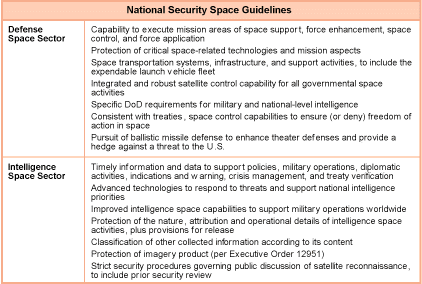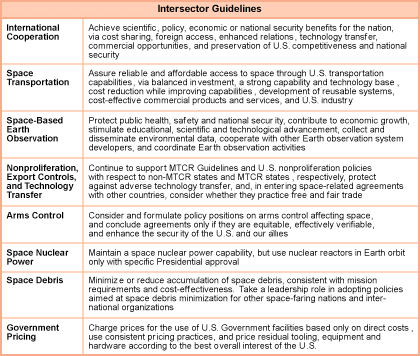|
|||

|
|||
|
"Our National Space Policy... updated the goals of the U.S. space program." |
 National Space Goals Our National Space Policy, signed by the President in September 1996, updated the goals of the U.S. space program. They are to:
|
||
|
|

|
||
|
National security space sector guidelines from the National Space Policy are summarized in the first table on the next page. In addition, the National Space Policy's designated intersector guidelines are identified in the second table to illustrate the breadth and scope of national security space interactions with a full range of other activities.
|
|||
|
National
Security Space Guidelines comprise Defense and Intelligence Space Sector responsibilties |

|
||
|
Intersector Space Policy guidelines are designed to attain clear policy objectives |
 |
||
|
"... maintain a strong, stable and balanced national space program ..." |
 Directed greater coordination
between DoD and Intelligence Community space activities and the
integration of space architectures to the maximum extent feasible; Directed greater coordination
between DoD and Intelligence Community space activities and the
integration of space architectures to the maximum extent feasible;
Those guidelines reflect the increased interaction among sectors. More and more providers and users, both domestic and foreign, present increasing supplies and demands for space-related goods and services, many of them under the purview of the DoD. Some of the challenges they present — and initiatives we are undertaking — are addressed under specific functional topics in the pages that follow.
|
||

|
|||

|
|||
|
NEWSLETTER
|
| Join the GlobalSecurity.org mailing list |
|
|
|



